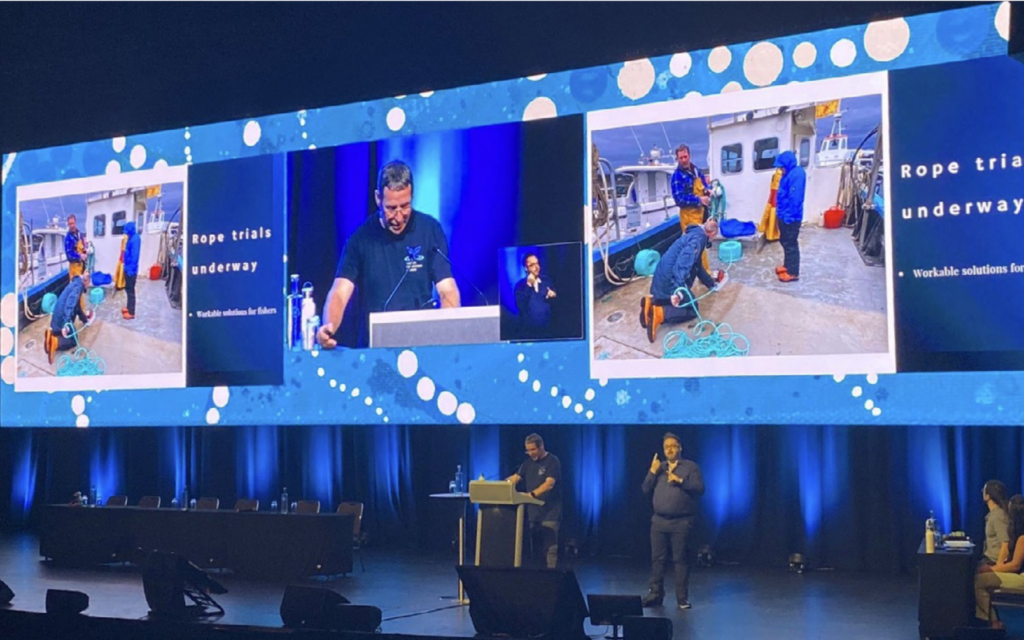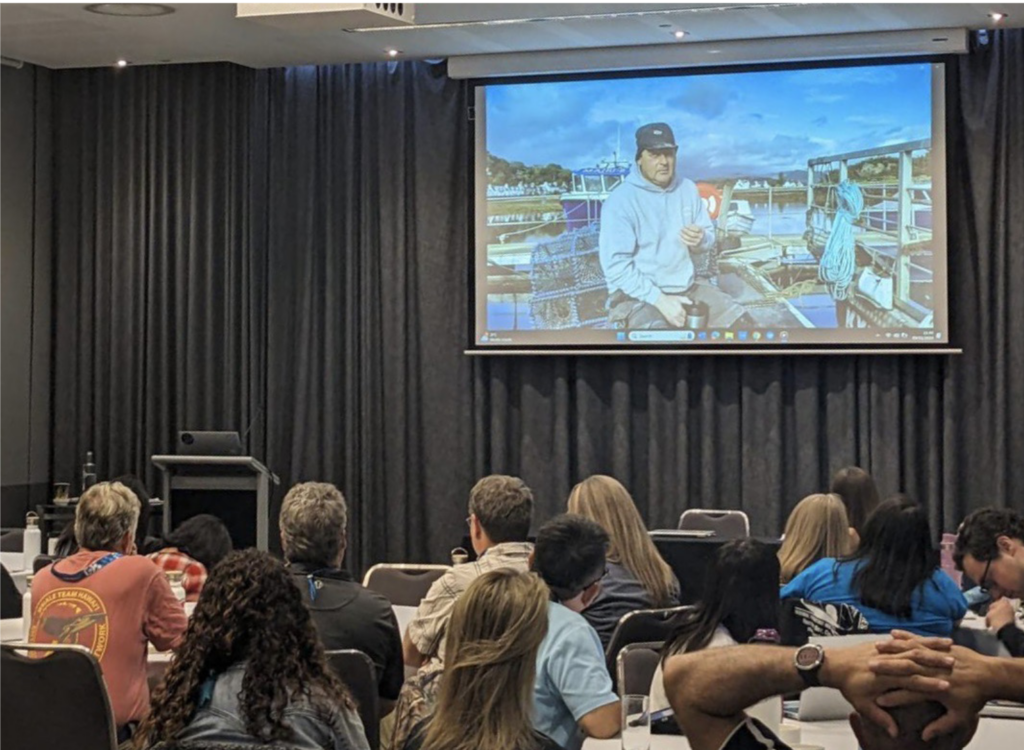

Funding from the Company’s Fisheries Charitable Trust enabled the The Scottish Creel Fishermen’s Federation to visit Western Australia last November, helping to ensure that working fishermen were front and centre at a conference sharing global expertise on mitigating conflicts between fisheries and marine mammals. Here Bally Philp, representative for the Scottish Creel Fishermen’s Federation, writes about his experience.

It would be a lie to say I didn’t have any misgivings. Australia seemed like a ridiculously distant place for the Scottish Creel Fishermen’s Federation (SCFF) to be heading off to, just to make some presentations and run a workshop. We could only justify this if there was something substantial happening to account for the time, money and of course carbon footprint. That set the bar pretty high.
Off the back of years of hard work in collaborative approaches to reducing conflicts between fisheries and cetaceans, and previous successful knowledge exchanges, the Scottish Entanglement Alliance (SEA), of which SCFF is a member, secured funding from The Fishmongers’ Company and the Jock Clough Marine Foundation to support SCFF’s attendance at the Society of Marine Mammalogy’s 25th Biennial Conference on the Biology of Marine Mammals in Perth, Western Australia last month. Still, it would have to be an impressive workshop, with attendance from all the great and the good working in the world of entanglement reduction, to justify this.
The theme of the conference was ‘Culture and Conservation: Fishing for Change’, focusing on one of the most significant threats to marine mammals –interactions with fisheries. One thousand, six hundred delegates from 80 countries attended, surely constituting one of the largest gatherings ever of expertise in marine mammal and shark bycatch mitigation.

In a world where top-down legislative approaches have largely been favoured, how many would want to spend a whole day participating in a workshop focused on fisher- led, bottom-up approaches to entanglement mitigation instead? Thankfully, plenty! It became clear very quickly that support for fisher-led approaches was high.
The workshop included presentations on issues surrounding entanglement globally, screening of a short
film about our recent successful sinking groundline trial in the Inner Sound off the west coast of Scotland, and video testimonials from fishermen in Scotland, England, Mexico, South Africa and the US. Those featured are eager to reduce entanglement risk in their fishery but are experiencing similar financial, political an legislative obstacles in doing so.
During break-out sessions, non-fishing participants were asked to assume the role of a fisher and contend with both management interventions and other economic challenges, and to see things from fishers’ perspectives. The most important message of the day was when we pointed out to a room full of people who don’t make a living from fishing: “It’s easy to advocate for management measures when it’s not you and your livelihood that will be affected by them.”
In the coming weeks, we’ll produce and share a full workshop report and series of outputs from our time in Perth. But we did a lot more than just host one workshop (albeit a very productive one). Several of our team made presentations to the conference. Tim Awbery from the Scottish Association for Marine Science, another SEA partner, presented on and won two awards for his work on entanglement risk to minke whales in Scottish waters. I delivered a nerve- wracking presentation on the need for practical, incentivised entanglement solutions, and for support for fishers when management decisions impact
our livelihoods.
SEA partners from the Scottish Marine Animal Stranding Scheme and colleagues from the Mexico Marine Wildlife Rescue Center, who helped facilitate the fishermen earlier this year also presented and co-hosted an exhibition booth for the duration of the conference.
Was it worth the time, money and effort, and of course that all-important carbon footprint? It’s going to take time to see the full impact that our presence had, and if our message about listening to the experiences of working fishermen will influence decision-makers –but early feedback has been overwhelmingly positive. We widened our network, promoted the positive work of Scotland’s creel fishermen in this area on a world stage, and advanced the narrative that fishermen must be included and supported in the development of entanglement mitigations.
SEA is clearly doing world-leading work. Our collaborative fisher-led approach got nothing but supportive feedback, and SCFF is proud to be a part of this. We’ve been invited to participate in more knowledge exchanges, and we are becoming more confident by the day that the most successful approach to tackling bycatch and entanglement is to put fishermen at the heart of the decision-making process, and leverage their knowledge and expertise every step of the way.
So what’s next? SEA is planning a series of workshops this winter facilitated by Scotland’s Regional Inshore Fisheries Groups. These aim to update our fishing communities on our progress to date, and gather fishers’ opinions and knowledge to assist in mapping out the next steps for Scotland’s creel fisheries. They will ask creel fishermen how the successful trials with negatively buoyant rope might be implemented in Scottish creel fisheries.
From the perspective of the SCFF, the more creel fishers, the more fishing associations and the more expertise we can get at those meetings, the more likely we will all be to identify and progress the best options. For us, the key is ensuring as much as possible that a focus on securing the livelihoods of fishers is at the heart of these decisions. We’d urge all of Scotland’s creel fishers and fishing associations to keep an eye out for the meetings in your area, and wherever possible to bring your knowledge and expertise to the table.